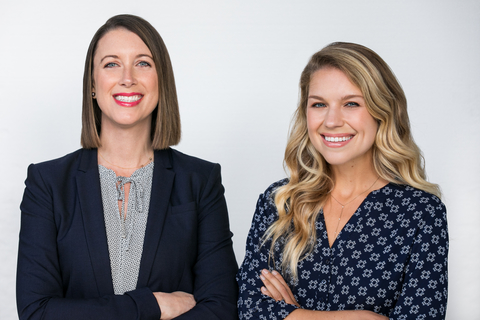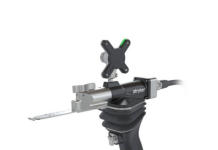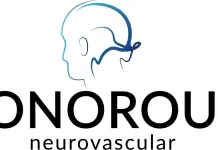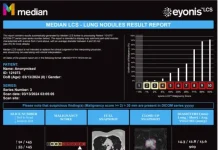
A startup providing online eating disorder therapy has raised $13 million as investors ramp up funding for virtual care providers that target specific behavioral health conditions.
San Diego-based Equip virtually delivers evidence-based eating disorder treatment to families at home and has raised $17 million to date. The series A round was led by Optum Ventures with participation from new investor .406 Ventures and existing investor F-Prime Capital, which led the company’s prior seed round.
Equip co-founder Kristina Saffran recovered from anorexia as a teenager and founded nonprofit Project Heal at the age of 15 to help open up access to eating disorder treatments.
Evidence-based approaches such as family-based treatment (FBT) can help patients successfully recover from eating disorders such as anorexia, but many people don’t have access to this treatment, Saffran said.
“Over the past 15 years, I’ve watched people cycle in and out of treatment centers before they’ve even heard of FBT,” said Saffran, who serves as Equip’s CEO. “We believe this model, which combines lived experience and clinical expertise, provides the hope that recovery is possible and worth the hard work.”
Saffran teamed up with Erin Parks, Ph.D., a clinical psychologist and researcher, to launch Equip in 2019. Parks has spent the past decade at the renowned UC San Diego Eating Disorders Center.
It’s estimated that 80% of the 30 million Americans who struggle with eating disorders never receive treatment, and less than 1% have access to FBT, which is widely recognized as the leading evidence-based treatment.
Eating disorders have the second-highest mortality rate of any psychiatric illness, outranked only by opioid use disorder. Eating disorders also are on the rise during the pandemic. Hotline calls to the National Eating Disorders Association are up 70% to 80% in recent months, NPR reported.
“Eating disorders are very serious and can be deadly, but a full recovery with proper treatment is 100% possible,” Saffran said.
With a focus on making evidence-approaches more accessible, Equip was built to be an all-virtual provider, even before the COVID-19 pandemic hit.
“From those who have had access to FBT, we’ve heard loud and clear that they wanted mentorship, a coordinated care team, and treatment at home so they could build a life worth living to drown out the eating disorder voice,” said Parks, chief clinical officer of Equip. “So after years of plugging holes, we decided to build this model we knew we needed to exist.”
The company provides families with a five-person dedicated care team, including a peer and family mentor, a medical physician (psychiatrist, primary care physician or pediatrician), a therapist and a dietician. Equip’s fully virtual platform allows families to arrange treatment to fit their schedules and needs.
“If you are someone struggling with eating disorders it can be three to four appointments a week, with a dietician, a medical physician and a psychiatrist. This improves access for families so parents don’t have to leave work early to drive to sessions or don’t have to take children out of soccer practice to go to treatment,” Saffran said.
The company has partnered with several insurance partners, including Optum. Equip also is working to secure contracts with Medicaid plans.
Equip launched its services in California, New York and Texas and intends to use the funding to expand its geographic reach and deliver care to additional patient populations in 2021.
The company plans to be active in all 50 states in the next two years, the co-founders said. Equip also plans to use the funding to continue building its clinical team and developing its technology platform.
Saffran said Equip represents the first venture-backed eating disorder telehealth company and brings a collaborative care team approach to virtual care.
Investors are showing an interest in digital health companies that target specific behavioral health conditions.
For instance, Freespira, a digital therapeutic for panic disorder and post-traumatic stress disorder, has raised $20 million, including a recent $10 million capital raise led by Lightspeed Venture Partners.
Meanwhile, Maven, a virtual clinic for women’s and family health, offers mental health support, including for postpartum depression. The startup has raised more than $90 million in funding from leading investors like Sequoia Capital, Oak HC/FT Partners, Icon Ventures and Female Founders Fund.
Equip’s virtual approach to high-quality eating disorder treatment being has the opportunity to better enable families to support recovery, said Laura Veroneau, partner at Optum Ventures, in a statement.
Patrick J. Kennedy, a former U.S. representative and a mental health advocate, is an adviser to Equip.
“Their focus on evidence-based approaches and commitment to working closely with health insurers sets them apart from the traditional treatment landscape, which is often opaque, ineffective, and far too expensive,” he said.




